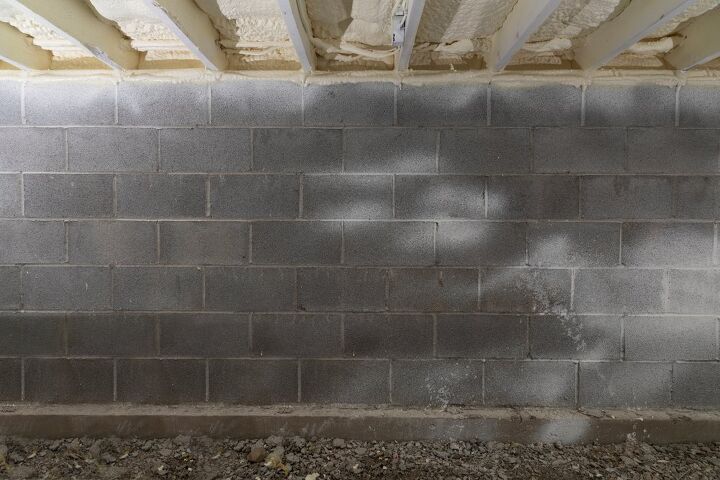What Is An Island Basement? (Find Out Now!)

When I most recently went to parts of the Jersey Shore that were seriously ravaged by Superstorm Sandy, I noticed that something was a little different from how things used to be. The homes started to look a bit…different? Yeah, that’s the word. Apparently, island basements became part of the building code in many towns. But, what did that even mean?!
Island basements are a type of foundation that lifts the home while giving homeowners a tall crawlspace for storage. Or rather, it’s like a crawlspace with more headroom. Island basements are used as a way to prevent flood damage when water levels rise up around the home.
If you have just started to hear about island basements, you probably are curious about what this means for your home, it’s time to learn more.
Do You Need Basement Remodeling Services?
Get free, zero-commitment quotes from pro contractors near you.

What Is An Island Basement For?
Make no mistake about it. Island basements aren’t just “basements,” per se. They are a style of foundation that just so happens to offer up an extra slice of storage space. While most homes with a little elevation would call them a crawlspace, island basements are a lot larger. People are generally able to stand and walk around in them.
How Can You Tell If A Home Has An Island Basement?
If you live near a coastline or are in an area designated as a flood zone, it’s safe to assume that the houses in your neighborhood all have island basements. With that said, most real estate agents will tell you if the home has one.
Want to know if a home has an island basement, but don’t want to ask about it? If you’re just passing by, homes with island basements often have a lifted appearance with the basement peeking out of the ground. With that said, some homeowners manage to hide the “island” portion of their house by adding bushes and tall shrubs.
What Are Island Basements Good For?
Island basements, in most senses of the word, are still basements. They’re just lifted to protect the main part of your home from flooding. That’s generally considered to be their primary function, but the space itself offers a lot of opportunities. With a little extra elbow grease, homeowners can do any of the following with them:
- They can use them as an auxiliary garage. This is common in areas where lot sizes aren’t too big. I suggest this if you want to have a she-shed but don’t have the yard space for a real shed.
- You can convert them into additional living quarters. Guest room? Sure. It’s a vibe. Just make sure that your building code is alright with that.
- Or, you can use it for storing stuff. Everyone has a bunch of knickknacks that they don’t usually use. When you need to store them, an island basement can be handy for this project.
- If you are a music artist, the strong, thick walls of an island basement can provide a way to avoid noise complaints. Ideally, you’ll also look into soundproofing between floors. People taking a nap upstairs don’t want to hear the music your playing beneath them, even if it is a great mix.
Why Are Island Basements So Common?
There are two main reasons why island basements are so common. First off, you can do a lot with an island basement and they offer a lot of protection from floods. With all the trends towards high housing prices and climate change, it makes sense to have an island basement. It’s just prepping for the future, really.
However, there’s a more finance-backed reason for this.
With the increase of hurricanes ravaging many parts of the country, both FEMA and homeowners insurance companies decided to make it mandatory for houses near flood-prone areas to have island basements. In some cases, they can also have lifted foundations that do not contain a basement. Either way, it’s a way to prevent having to demolish homes damaged by floodwaters.
Because having widespread damage to homes throughout an area doesn’t bode well for property prices, most municipal areas near water also mandate it. So, you might also see island basements as a result of local building codes. Regardless of whether it’s FEMA or your local town codes, it’s all done to ensure safety for residents.
Do You Need Basement Remodeling Services?
Get free, zero-commitment quotes from pro contractors near you.

Related Questions
What is the difference between a cellar and a basement?
Basements can be at or below ground level, while cellars tend to be entirely underground. Cellars also tend to be smaller than full-scale basements, with less climate control too. Because they tend to be colder and slightly damper, cellars also are better for being used as storage space for wine, coal, or even certain types of cheese.Unlike basements, cellars cannot be upgraded into living areas. They are not meant for that and would make most people very uncomfortable.
Is it possible to sell a home that has extensive flood damage?
You can legally sell a home that has noticeable flood damage, but that doesn’t mean it is going to be easy to do. If your home was flooded, you legally have to mention that to potential buyers. Many buyers will back away right off the bat, especially if that means that they would be held liable for the repairs.If you are trying to sell a home that has serious flood damage, your best bet is to call a real estate investment company and ask them to buy it from you. Most regular homeowners will not want to have anything to do with a flooded home.
Do you need to buy flood insurance if you live in a flood zone?
Flood insurance is rarely ever mandatory, unless it’s literally required by city law. However, it’s a very smart investment to make, especially when you take climate change and extreme weather into account. If you do not have flood insurance, any property you have destroyed by a flood or extreme water rush will not actually be covered by the insurance that you would typically buy.
Related Guide

Ossiana Tepfenhart is an expert writer, focusing on interior design and general home tips. Writing is her life, and it's what she does best. Her interests include art and real estate investments.
More by Ossiana Tepfenhart



















![10 Most Dangerous Neighborhoods in Baltimore [Updated]](https://cdn-fastly.upgradedhome.com/media/2023/07/31/9075655/10-most-dangerous-neighborhoods-in-baltimore-updated.jpg?size=350x220)







